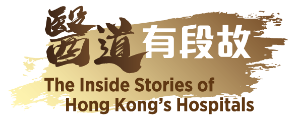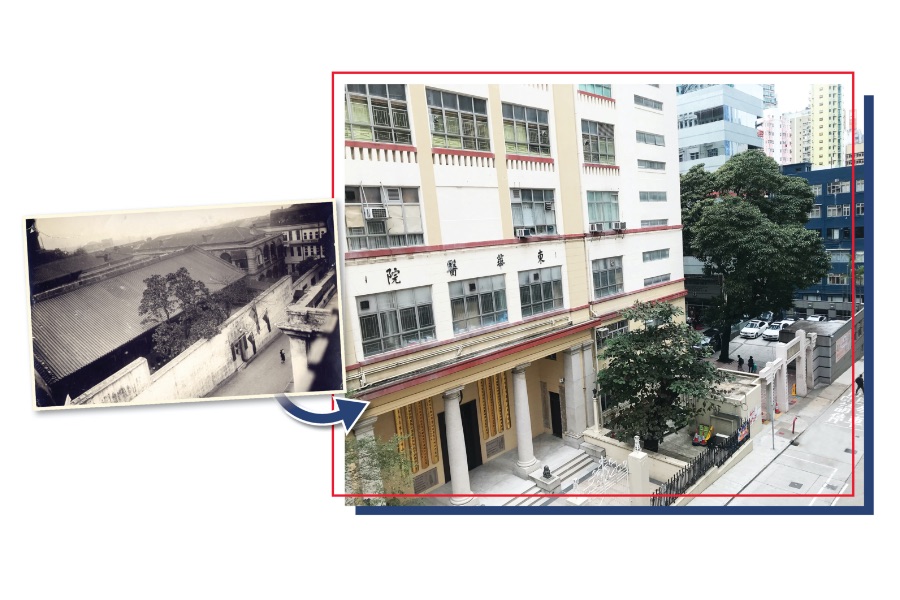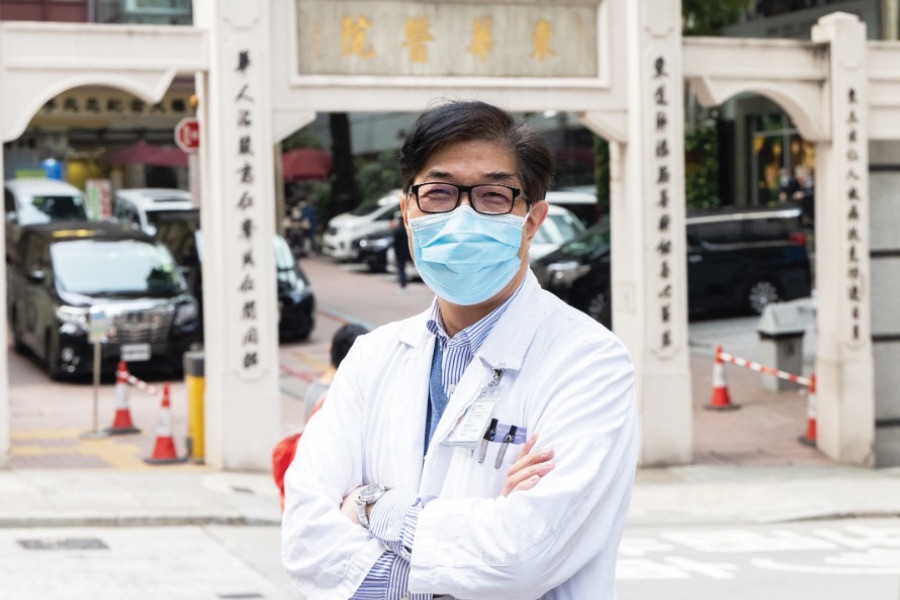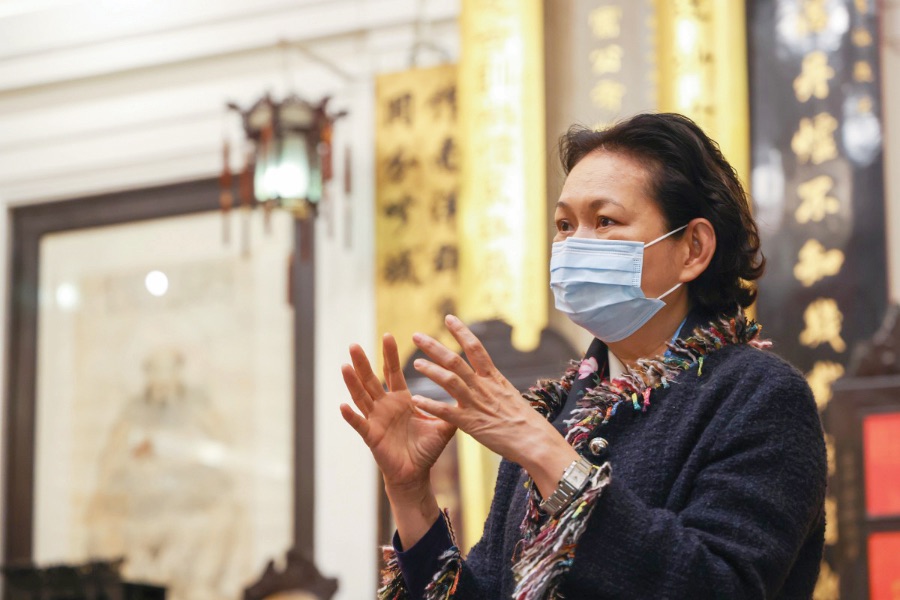
Century-old Tung Wah Hospital:
A beacon of humanity lights up dark times

It was created as a beacon of humanity at a time of widespread death and disease. A century and a half later, it has grown steadily and evolved with the times, but remains true to its principles of caring and showing kindness to people in need. The historic Tung Wah Hospital (TWH) began life providing free Chinese medical treatment to impoverished people. Today, it is a modern and technologically-advanced hospital providing a full range of services. TWH is becoming better and better along the way. Nevertheless, the spirit of ‘putting people first and treat them well’ has never changed.
The story of the TWH began with the Kwong Fook I-Tsz in Sheung Wan which gradually became a refuge for the sick and destitute as well as the morgue for the deceased. As the hygiene condition got worse, the Governor MacDonnell liaised with a group of Chinese community leaders to raise money for building a hospital to provide better care to the people in need. The hospital was subsequently built in Po Yan Street in 1870 after the enactment of the Chinese Hospital Incorporation Ordinance, and became the first Chinese hospital in Hong Kong to provide free traditional Chinese medical services to the sick and the poor and take charge of the operation of Kwong Fook I-Tsz.
Head of Records and Heritage Office of the Tung Wah Group of Hospitals Stella See, says the care the hospital gave extended beyond the grave, with directors helping arrange burials for members of the community who died outside of Hong Kong. “There is a Chinese saying that fallen leaves returning to their roots,” she says. “People who passed away overseas were returned for burial with the assistance of our former directors, who had close ties with the global business network. It shows that the hospital is not only providing free medical services, but also providing humanitarian support like disaster relief and assistance to trafficked or abducted women in its early days.”
The story of the TWH began with the Kwong Fook I-Tsz in Sheung Wan which gradually became a refuge for the sick and destitute as well as the morgue for the deceased. As the hygiene condition got worse, the Governor MacDonnell liaised with a group of Chinese community leaders to raise money for building a hospital to provide better care to the people in need. The hospital was subsequently built in Po Yan Street in 1870 after the enactment of the Chinese Hospital Incorporation Ordinance, and became the first Chinese hospital in Hong Kong to provide free traditional Chinese medical services to the sick and the poor and take charge of the operation of Kwong Fook I-Tsz.
Head of Records and Heritage Office of the Tung Wah Group of Hospitals Stella See, says the care the hospital gave extended beyond the grave, with directors helping arrange burials for members of the community who died outside of Hong Kong. “There is a Chinese saying that fallen leaves returning to their roots,” she says. “People who passed away overseas were returned for burial with the assistance of our former directors, who had close ties with the global business network. It shows that the hospital is not only providing free medical services, but also providing humanitarian support like disaster relief and assistance to trafficked or abducted women in its early days.”
Plague gives impetus to change
An outbreak of bubonic plague in 1894 was a turning point for Tung Wah Hospital’s transformation into a hospital offering both Chinese and western medicine. At that time, western treatments such as vaccinations, surgeries, and autopsies, were not widely accepted by Chinese people. In 1896, driven by the Government, a western medicine department was set up in TWH after the bubonic plague pandemic in Hong Kong. Western medicine was then gradually accepted by patients, fostering the development of TWH into a major hospital with comprehensive services.
Deputy Hospital Chief Executive Dr Joseph Chung, who has worked at the hospital for 22 years, explains, “The plague prompted the Government to improve the poor sanitary environment and introduce western medicine. A century on, we are now combating COVID-19. Unforeseen event also gave us an opportunity to change. Last year, we have had to adapt to a new normal to maintain patient services and reexamine the current healthcare system’s capacity to combat outbreaks. Besides, the hospital’s newest building, the Centenary Building, has nearly 50-year history. We have to improve its facilities including the infection control measures so that patients can be assured of receiving treatment in a safe and comfortable environment,” says Dr Chung.
Today’s hospital is vastly different from the one set in 1870 to help people in desperate need. In addition to Chinese medicine, it now offers medical, surgical, otolaryngology, and rehabilitation services. Despite the changes over past years, one thing remains unchanged: the hospital holds dear benevolence, care, and duty to its heart.
Deputy Hospital Chief Executive Dr Joseph Chung, who has worked at the hospital for 22 years, explains, “The plague prompted the Government to improve the poor sanitary environment and introduce western medicine. A century on, we are now combating COVID-19. Unforeseen event also gave us an opportunity to change. Last year, we have had to adapt to a new normal to maintain patient services and reexamine the current healthcare system’s capacity to combat outbreaks. Besides, the hospital’s newest building, the Centenary Building, has nearly 50-year history. We have to improve its facilities including the infection control measures so that patients can be assured of receiving treatment in a safe and comfortable environment,” says Dr Chung.
Today’s hospital is vastly different from the one set in 1870 to help people in desperate need. In addition to Chinese medicine, it now offers medical, surgical, otolaryngology, and rehabilitation services. Despite the changes over past years, one thing remains unchanged: the hospital holds dear benevolence, care, and duty to its heart.

